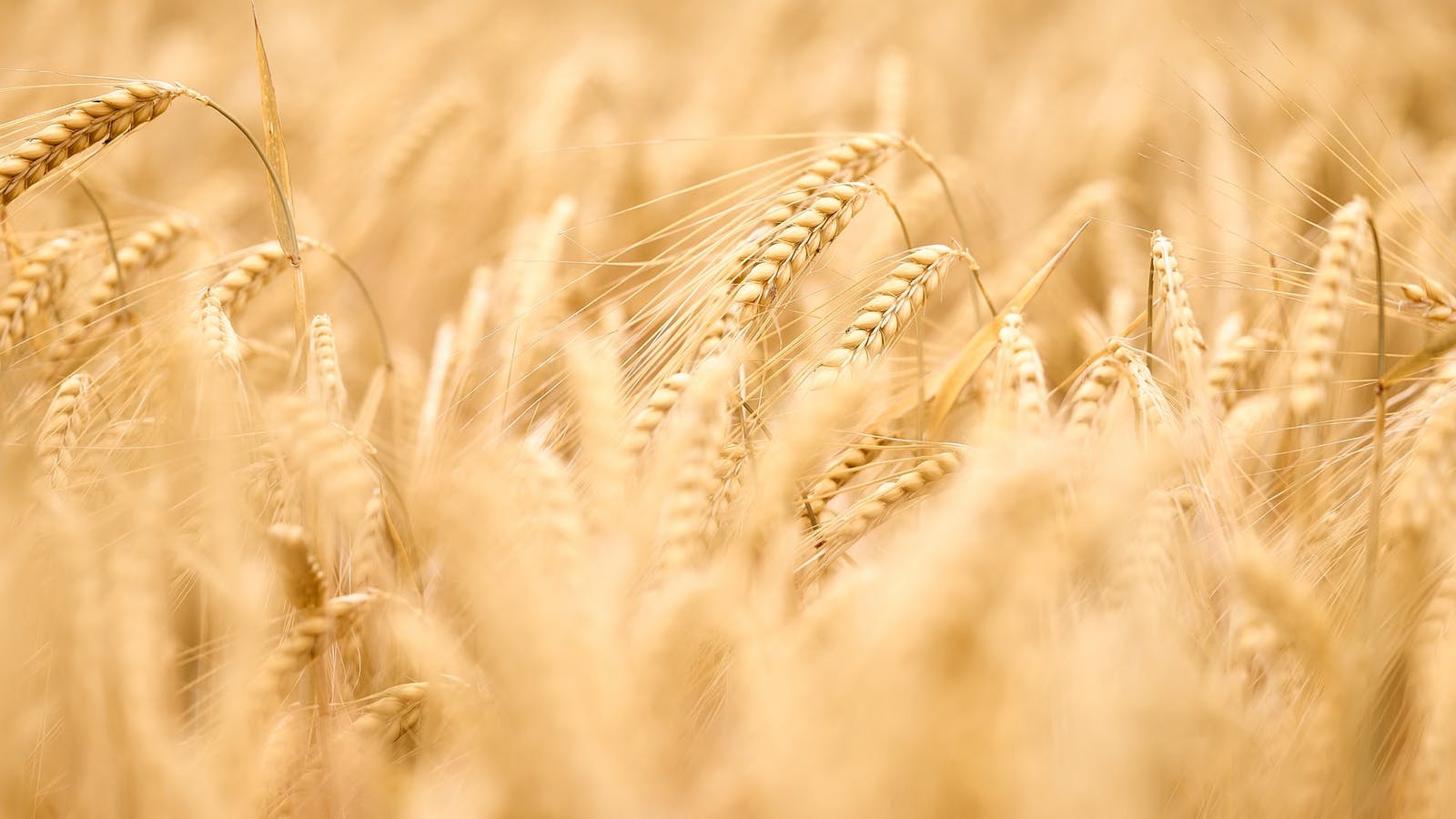AH!!! Cereals... Bread, pasta, rice... They don't always have a good reputation. Whether to lose weight or for health, these foods are sometimes banned from the plate. Is this really a good idea?
ZOOM: Man & cereals
For 99.9% of its history, humans ate without grains! Wheat was first consumed only 10,000 years ago, during the beginnings of agriculture and the cultivation of cereals. These 10,000 years are ridiculous on the scale of humanity.
If we are to believe scientists, humans began to evolve 3 million years ago. 10,000 years over 3 million years represents 0.3% of our history. The human microbiota was therefore unable to adapt to this sudden dietary change, when for 99.9% of the time, the human body was accustomed to a diet based on raw products not invented by man.
Furthermore, for reasons of productivity and yield, numerous genetic manipulations have been carried out on wheat. They are the result of advanced genetic techniques. Original wheat had 14 chromosomes while current wheat has... 42. In terms of comparison, in humans, the addition of a single chromosome has immeasurable effects (for example, Down syndrome). So imagine what can happen by multiplying genetic heritage by 3... If wheat were a cow, she would have 28 legs today!
The harms of gluten on health
We talk about gluten a lot, it's everywhere, so why are we avoiding it?
Gluten is a protein found in rye, oats, wheat, barley, spelt and einkorn.
Gluten is a glue . It connects the wheat molecules together. Moreover, the term “gluten” comes from the Latin “glutinum” which means bond or glue. This glue is deposited on our small intestine and prevents the proper assimilation of nutrients (key role of the intestine).
Many studies have proven that gluten causes inflammation of the small intestine and increases small intestinal permeability (opening of tight junctions between enterocytes).
Finally, gluten increases the acid-base imbalance in the body.
Eliminate cereals for better digestion?
For some people, gluten is not the only culprit for digestion problems. ALL cereals are involved: gluten but also all gluten-free cereals such as corn, rice, millet... without forgetting pseudo-cereals such as quinoa and buckwheat.
Despite the elimination of gluten-based foods, they still have problems with the digestive system, the ENT system, the nervous system or even the skin.
To find out if there is an intolerance, it is then interesting to do the test of excluding all cereals from their diet for at least 1 month and to observe if the problems persist. If so, you will then have to reintroduce the cereals one by one in order to know which ones are really causing the problem. Sometimes, intolerance is linked to pseudo-cereals since they have a different nutritional composition from the grass family of which cereals are a part.
Take the test! For 1 or 2 weeks, try the hunter-gatherer diet. This contains:
- Animal proteins: egg, fish, meat (rather lean)
- All types of vegetables including tubers such as sweet potatoes, Jerusalem artichoke, turnips, etc.
- Various and varied fruits
- Seeds: walnut, almond, hazelnut
In short, avoid cereals as well as dairy products, legumes (lentils, peas) and refined products.
Eliminate cereals to lose weight?
It is true that for some people removing cereals in the evening is a simple way to lose weight. By facilitating and lightening our digestion, the body regenerates better, eliminates better and stores less.
However, this must be done without any frustration, otherwise there is a risk of causing the famous “evening breakdown”. It is precisely by only settling for a soup or a small salad of raw vegetables that you will be tempted to snack afterwards in front of the TV. It's better to eat cereal in the evening than to start (and finish) a bag of cakes at 10 p.m.
If we consume cereals it is also because they have certain positive points: cereals are filling and comforting . After an intense and stressful day you will need something sweet and cereals can be beneficial for this. In particular, they prevent evening cravings, a stomach that cries out for hunger in the middle of the night, and bring you the comfort and love you need. So, if you are a stressed or anxious person, who eats alone and tends to binge eat, eat cereals even in the evening to maintain a healthy weight by calming you down and putting an end to this conflictual relationship with food. .
In fact, the question is rather what do you mean by the term cereals.
Favor organic whole grains
Whole grains have a much more interesting nutritional profile than classic refined grains. We call all those nutrient-deprived white grains with empty calories refined grains. For example, white pasta is pasta made from cereals from which the bark and germ have been previously removed, where the majority of the nutrients are concentrated. On the other hand, in whole grains, these different parts have been preserved. They are therefore much richer in vitamins, minerals and also fiber which will nourish and protect your intestinal flora.
Be careful, pesticide residues stick to the bark. So, if possible, prefer organic whole grains.
5 alternatives to wheat
To stay healthy and maintain a stable weight, balance is key. Avoid excess and be curious to discover new cereals to integrate into your daily life.
Quinoa is a pseudo-cereal (cousin of spinach), it is rich in magnesium and protein. It can be eaten savory but also sweet with a few almonds, raisins and a little vegetable milk.
Buckwheat , this black wheat of the Bretons, is also a pseudo-cereal (from the same family as rhubarb and sorrel). We especially know it as a pancake. Rich in copper, magnesium and B vitamins, it is a good remineralizer.
Millet , as nutritious as it is digestible, is gluten-free and rich in provitamin A. Concentrated in phosphorus, it fights against fatigue and depression.
Einkorn and kamut, two ancestors of wheat, with a very pleasant flavor. The first is very rich in phosphorus, magnesium, potassium and calcium. The second contains selenium which is good for the joints and 20 to 40% more protein than wheat. Their nutty taste goes perfectly with cake preparations.
Experiment: delete, add, see what suits you best. Remember that nothing is completely black or white. What corresponds to your neighbor does not necessarily correspond to you. And, if you have any doubts or need support, do not hesitate to consult a naturopath.
Eat better. Eat mindfully.

